Hello, wonderful readers! Today I’m thrilled to share a truly exceptional recipe with you, a dish that not only delights the taste buds but also unlocks the doors to a multitude of health benefits ??. Inspired by the ancient traditions of Ayurveda and deeply inherent in the culinary legacy of Sri Lanka’s Buddhist culture ?? I present to you the famous Kola Kenda – Vegan Porridge. Adhering their monastic life, where simplicity governs supreme, monks allow them only two meals a day – breakfast and lunch. By enjoying the vegan porridge in the following morning after a period of no solid food, Kola Kenda supplies the monks with sufficient restoration and rejuvenation ?? to follow their daily routines.
Scroll down to discover more than just ingredients and instructions ⬇️: Moreover, you’ll be presented the pathway to Kola Kenda’s remarkable health benefits, promoting wellness and vitality.
Choose your herbs ? (& unlock the secret health benefits)
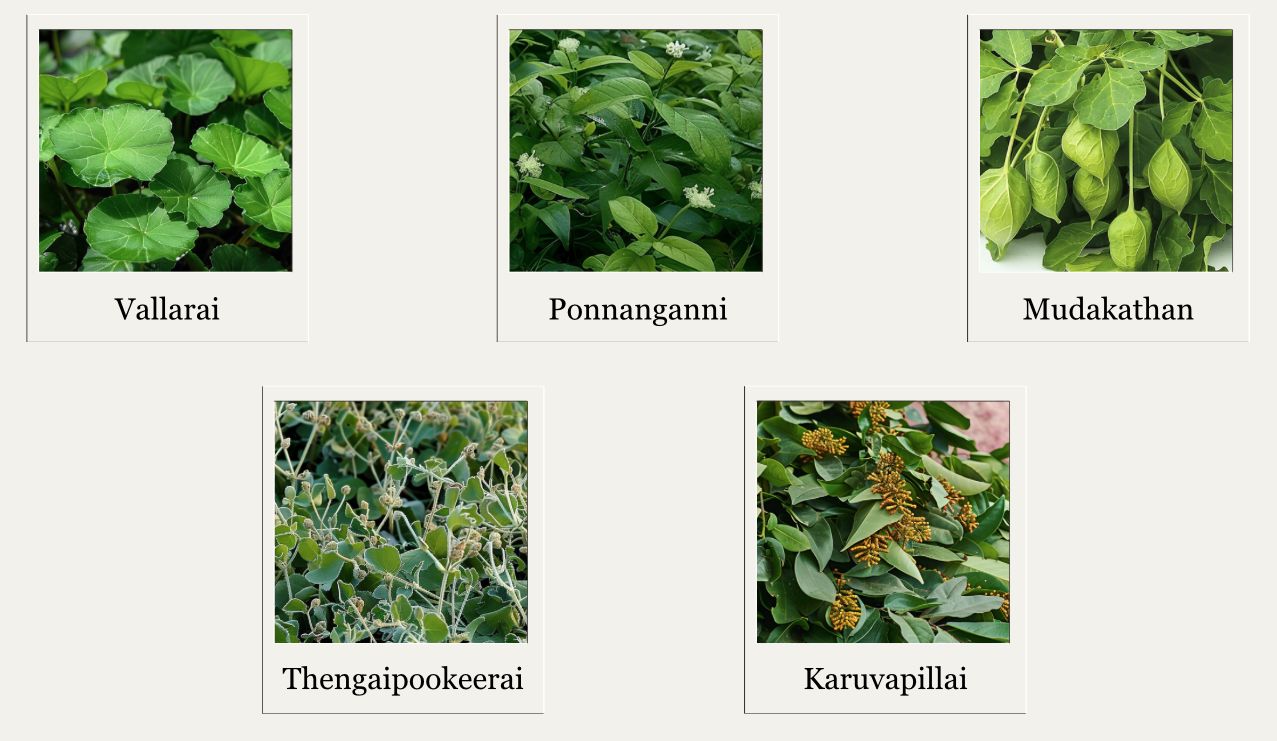
Vallarai (Gotu Kola): Rich in Vitamin B and C, Vallarai proves advantageous for enhancing brain activity ?, supporting the proper functioning of the nervous system, and relief from joint pain ?? in conditions like arthritis. This herb is traditionally employed in Indian and Chinese medicine for various purposes, including the treatment of skin diseases like eczema and providing assistance for digestion.
Ponnanganni (Mukunuwenna): Abounding in vitamins, minerals, and antioxidants, Ponnanganni enhances eyesight ?️ and contributes to bone and tooth health ? due to its high calcium content. Moreover, the spinach aids in lactation, weight management, and asthma treatment.
Mudakathan (Welpenela): Also known as Balloon Vine, Mudakathan improves joint pain, inflammation, and (rheumatoid) arthritis. The spinach is not only useful in treating colds and coughs ?️, but also helps curing skin conditions like eczema. Mudakathan oil enhances external hair growth and helps in maintaining gastric health. Moreover, it serves as a gentle laxative and boosts energy levels, reducing fatigue.
Thengai Poo Keerai (Polpala): This green leafy vegetable is full of vitamins and minerals ?, strengthening immunity and supporting digestion. Furthermore, Thengai Poo Keerai is utilised in the treatment of diabetes and urinary tract issues, while also being renowned for enhancing skin health and providing essential nutrients to the body.
Karuvapillai (Karapincha): Beyond its distinctive taste, Karuvapillai leaves are packed with nutrients, antioxidants, iron, and vitamins A, B, and C. They support digestion and enhance hair growth ??, making them a valuable addition to one’s diet. Moreover, the herb contains anti-inflammatory properties and contributes to the overall health.
All herbs can usually be found at your local Indian store.
Enhancing quality of life ??♀️ with Kola Kenda Recipe
? Prep Time: 10 min | ??? Cook Time: 20 min | ⏱️ Total Time: 30 min |?Servings: 3-4
? Ingredients:
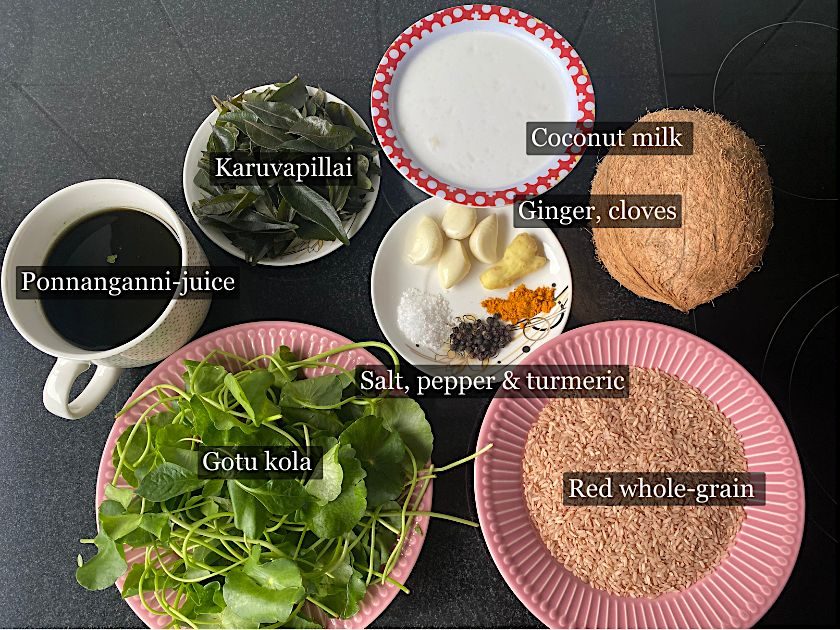
- 100 g red whole-grain or white long-grain
- 400 g gotu kola and/or any of the greens mentioned above
- 10 g grated ginger
- 450 ml water (200 ml for the rice and 250 ml for the spinach juice)
- 150 ml coconut milk or 1/2 coconut and 200 ml water
- 4 garlic cloves
- A pinch of salt, pepper and turmeric
? Instructions:
1. Thoroughly wash the red whole-grain three times in a bowl and add it to the pan ?.
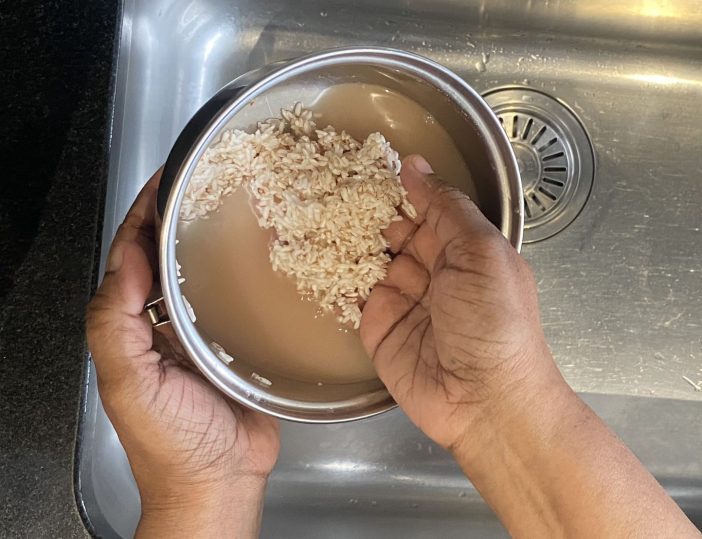
2. Pour 200 ml of water into the pan and heat the stove to a simmer. Grate the ginger and cut the garlic cloves lengthwise before adding them into the pan.
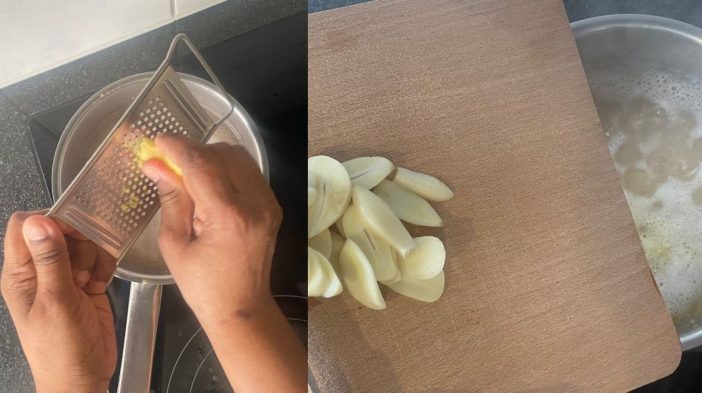
3. Season with salt to elevate the flavours?and cook the mixture until all the water evaporates.
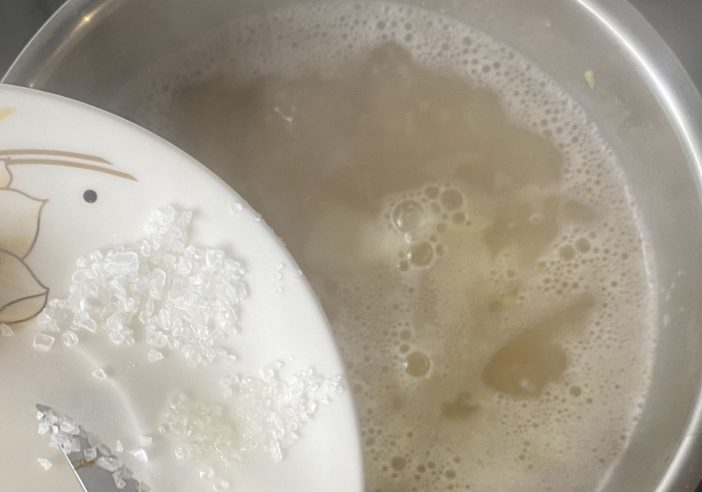
4. While the rice is cooking, we can prepare the coconut milk and spinach juice. (Alternatively, you can also buy pre-packaged coconut milk)To make the coconut milk, use halve a coconut and remove the fruit by cutting it out ?.
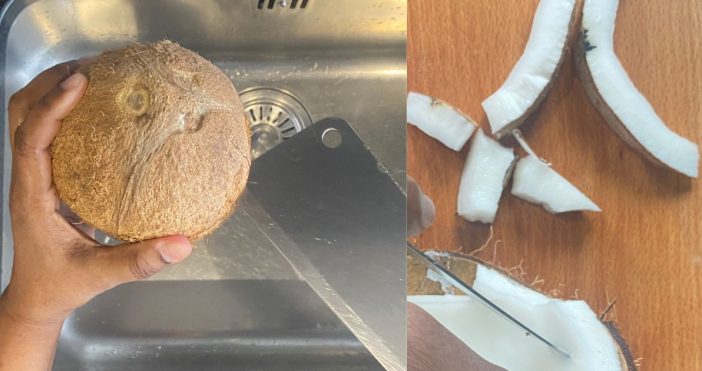
5. Place the fruit in a blender, pour in 200 ml of water, and blend until the coconut milk forms. Strain the milk into a bowl, separating the coconut flesh to filter out the milk.
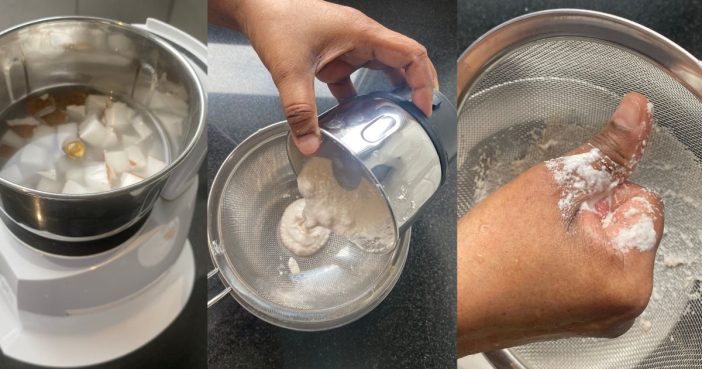
6. Next, prepare the spinach juice: I chose to prepare the juice with 150 g gotu kola, 150 g ponnanganni and 100 g karuvapillai ?. Wash the spinach varieties with a pinch of salt and turmeric. Add the spinach and 250 ml of water to the blender and blend until the juice becomes smooth. Strain the juice into another bowl, separating the spinach pulp until only the juice remains.
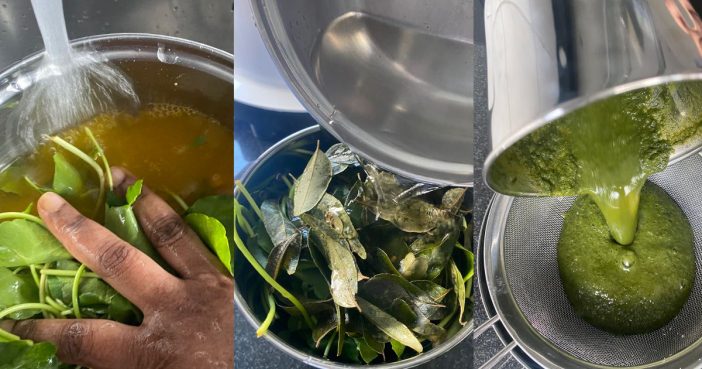
7. Once the rice is cooked, stir it on the stove over existing heat until a porridge forms ?. Add 150 ml of coconut milk and 200 ml of spinach juice to the porridge and stir the three preparations. Allow the Kola Kenda to cook until the porridge starts to boil, then turn off the heat. Do not let it boil further.
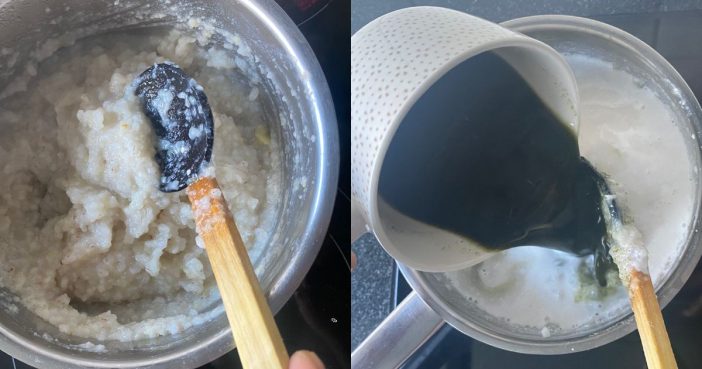
8. Serve while it is still warm with jaggery or use black pepper to enhance the flavour ?.
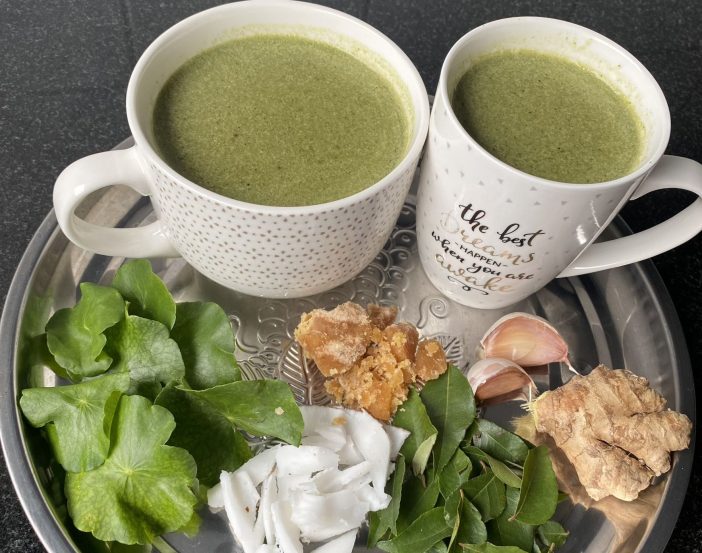
Your herbal porridge is now ready ??! Thank you for tuning into my blog posts ?!
P.S: To store it longer or to prepare this meal ahead of time, cook as directed in the recipe but do not add the coconut milk.
I trust you’ll relish this dish just as much as I do. Drop a comment below and share your thoughts. Did it delight with creaminess? Did it nourish your soul? Dive into a week of Kola Kenda and unlock its healing magic ??? – I’m eager to read about your experiences! And if you’re intrigued for more tantalising Tamil recipes and curious about their rich heritage, don’t miss my video guide to aromatic islamic Biryani and blog post on ABC-shots for that post-yoga power boost!
Bibliography:
- Traditional Herbal Porridge and Drinks of Sri Lanka. (2024, March 6). Retrieved from https://www.healthyliving.lk/article.html?id=1634647540182[1].
- Kola Kenda (Herbal Porridge/Kanji). (2024, March 6). Retrieved from https://berrychik.com/kola-kenda-herbal-porridge-kanji/
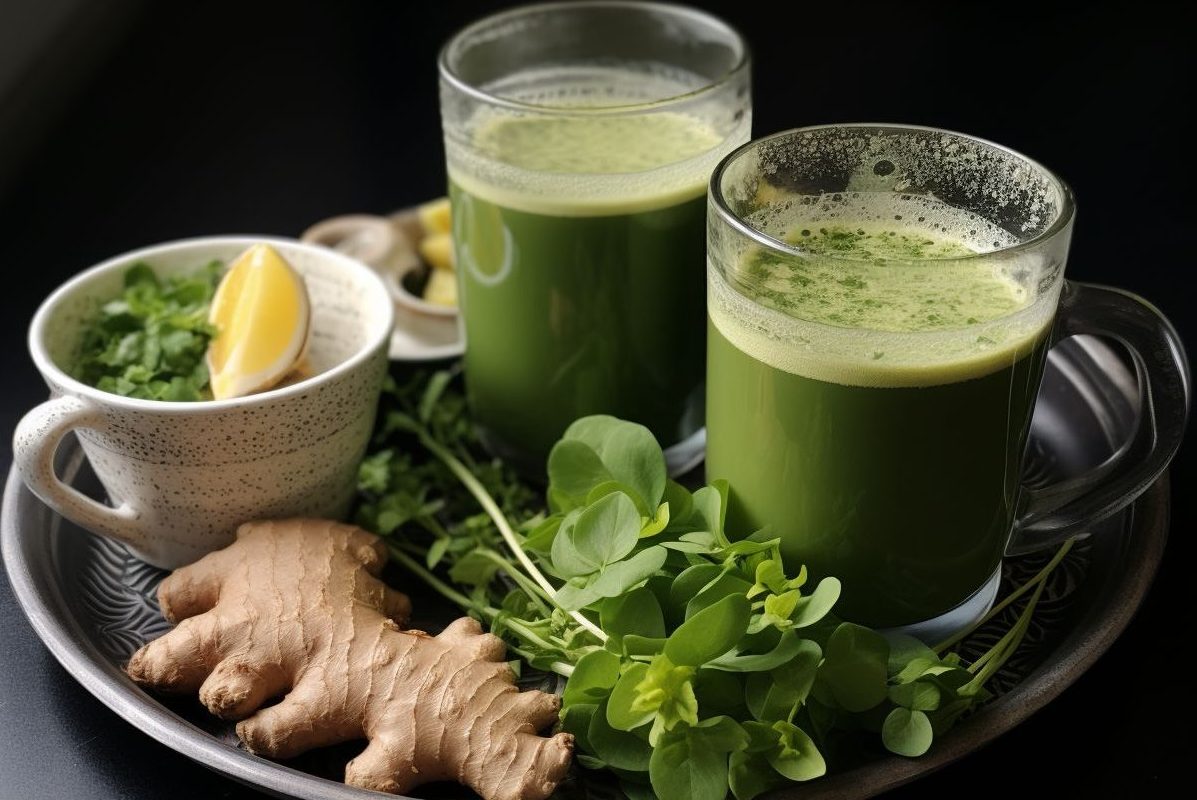

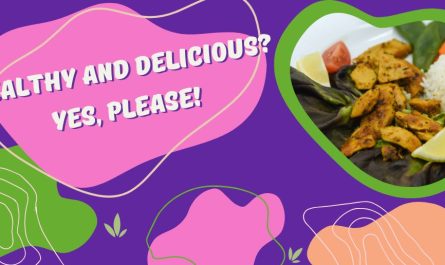

Must try!